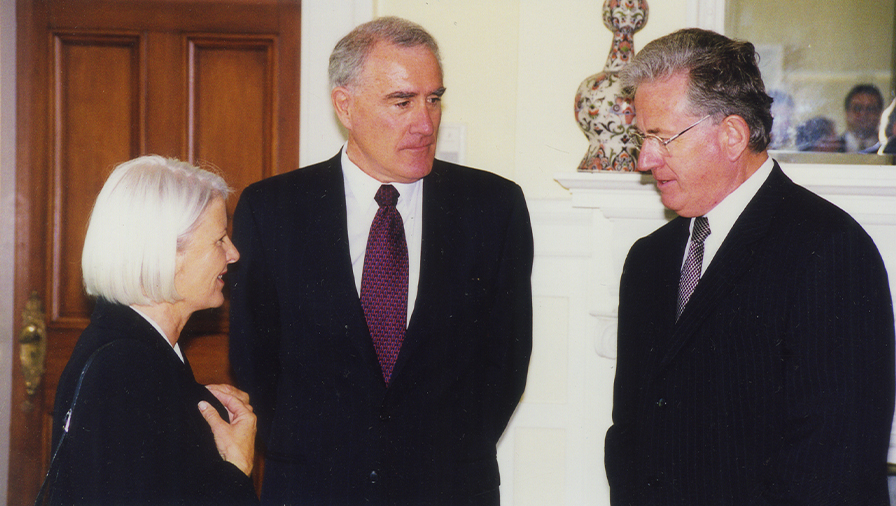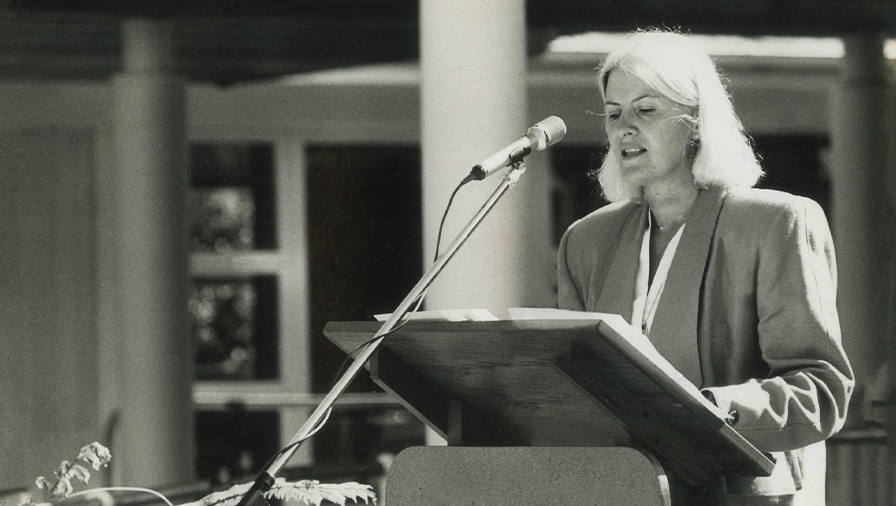Margaret Wilson’s political life of gain and pain
OPINION: Autobiography an insider’s account of women’s movement and fifth Labour-led government.
OPINION: Autobiography an insider’s account of women’s movement and fifth Labour-led government.
No one should under-estimate the reformist zeal of the Labour Party. Its election manifesto for the 1999 election ran to 536 pages of pledges, policies, and promises.
Former party president and cabinet minister Margaret Wilson reveals this in her autobiography, Activism, Feminism, Politics and Parliament. It deservedly stands alongside that of the late Sir Michael Cullen, Labour Saving, published earlier this year.
While Cullen was forced to rely on his memory and the public record, and had limited access to his private papers, Wilson’s account is based on detailed notes and diary entries.
Both are valuable contributions to political history spanning four decades. Cullen was two years older and they became politically active during the radicalism of the mid-1960s. Both were also academics who helped to change Labour’s profile from a blue-collar workers’ movement to one of middle-class professionals.
While their paths converged in the Labour-led government of 1999-2008, their perspectives were divergent. She was a fervent feminist with a crusading zeal for equality; he was an economic socialist leavened by practicalities of capitalism.
Cullen was elected in 1981, while Wilson did not enter Parliament until 1999 in the first crop of list MPs after the implementation of MMP. She had campaigned for the Tauranga seat but ran a close third to New Zealand First’s Winston Peters and National’s Katherine Regan.
Conviction politician
At 52, Wilson was an impatient conviction politician, hardened by years of advocating feminist policies and rising to presidency of the Labour Party during the first term of David Lange’s government (1984-87). Later she worked as chief of staff for Geoffrey Palmer during his brief tenure as prime minister after Lange’s resignation (1989-1990).

Her experience included a term as a director of the Reserve Bank and a member of the Law Commission. She spent the period of the three-term National government out of politics as the founding dean of the University of Waikato’s law school.
The caucus voted her straight into Helen Clark’s first cabinet after Labour predictably replaced a tired and divided National government.
Wilson did not see her lack of parliamentary experience as an impediment, nor did she think she would last more than two terms as a minister bound by cabinet discipline. She was confident she would succeed in a job that “required me to make my own decisions and trust my own judgment”.
Only lawyer
As the only qualified lawyer in the cabinet, she had already been promised the role of Attorney-General. But she was not expecting to be Minister of Labour, nor to be given responsibility for Treaty of Waitangi Negotiations, both much trickier portfolios, as well as being associate minister for Justice and State Services. In her five and a half years as a minister, she would also hold portfolios relating to courts, corrections, commerce, building issues, the Serious Fraud Office, and the Law Commission.
Wilson doesn’t deny the difficulties of being a minister: no choice in your staff (this has since changed) and punishing deadlines to deliver legislation within a three-year term. She admits her approach resulted in being described as difficult and demanding.
But she can look back at her achievements knowing she was on the side of history, with contentious legislation such as scrapping Privy Council appeals in favour of a new Supreme Court. She reveals former Labour MP Peter Dunne, who had formed his own party and was a minister in the National-led government, withdrew his support at the last minute.
Employers during this period will recall Wilson’s take-no-prisoners attitude to the repeal of the Employment Contracts Act with the Employment Relations Act. This was a pushback on the neoliberal labour laws that had ended compulsory unionism.
Wilson admits she was “not a good listener” when it came to employer concerns. She quotes references in the press to her being a “mad hatter” and a “dangerous zealot”. She concedes the Holidays Act (2003) was a hard nut to crack; this remains the case today.
In the event, the economic boom that accompanied Labour’s years in power to 2008 brought an end to the crippling stoppages under compulsory unionism. In 2003, work stoppages were the lowest since 1945. Nevertheless, the pressures had a personal impact, and she was re-assigned to commerce in a 2004 cabinet reshuffle.

Life of pain
In her teenage years, Wilson was keen on sport and looked forward to becoming a physical education teacher. This ended in 1965 when a leg was amputated to remove cancer. A life of chronic pain followed, though Wilson plays down the effects of this disability.
It forced her to concentrate on academic studies and a commitment to being financially independent. By the time she started university, after boarding at a Dominican high school in Auckland and being the only girl in the upper-sixth form at Morrinsville College, Wilson had embraced first-wave feminism.
She opted to study law, rare for women in the mid-1960s, followed by a spell in a legal office, where she specialised in work for unions and women. Wilson’s radicalism was focused not on street demonstrations but on how the law should not be just for the few and privileged but for everyone.
For women, this meant equal pay, maternal leave, matrimonial property, freedom from domestic violence, access to abortion, and human rights. These issues were to dominate her career as she became an academic at the University of Auckland, including a year of study in Canada, and deepened her involvement in politics.
Watershed year
In the watershed year of 1984, when Wilson was voted to the Labour Party’s top post, she authored a manifesto for women that is still being implemented today. The party was swept into power and immediately faced an economic crisis.
Its parliamentary wing quickly embraced the neoliberal policies of Roger Douglas and Richard Prebble, while the traditional union-based and activist party members were left out in the cold.
The party was united only on its anti-nuclear stance. The division over economic policy led to the government’s demise after just two terms, with Wilson seeing little future in working within the system.

After she departed for academia, and before she resumed her political career, the political environment moved in her favour. Labour had largely renounced its neoliberalism, with Douglas and Prebble departing to form Act, and had ideological partners in Jim Anderton’s Alliance and the Greens.
Women’s issues also became more prominent, with Clark and Jenny Shipley facing off in the 1999 campaign. For Wilson, the timing was right and her prediction of being a two-term minister proved prescient.
In fact, Clark elevated her to Speaker ahead of the 2005 election. Labour’s re-election gave her a full term as Parliament’s referee before she chose permanent retirement from politics and returned to academia.
It was a fitting reward for a woman who, even as she complained about the discomfort of the Speaker’s chair, had always put the interest of others before her own. That included, after being made a Distinguished Companion of the Order of Merit in the 2009 New Year’s Honours list, later turning down the opportunity to become a Dame Companion when that title was restored.
Activism, Feminism, Politics and Parliament, by Margaret Wilson (Bridget Williams Books).
Nevil Gibson is a former editor at large for NBR. He has contributed film and book reviews to various publications.
This is supplied content and not paid for by NBR